
Mark Bates
Institut für Nanophotonik Göttingen
Germany
EMBO Practical Course
Recent developments in cryo-EM/ET, super-resolution microscopy, and protein structure prediction — coupled with increasingly sophisticated methods of sample preparation — have revolutionised structural biology. Educating the next generation of researchers on how to strategically combine these disparate tools is critical for addressing the most challenging structural biology problems of the future.
Course participants will receive a comprehensive overview of state-of-the-art structural methods, with a focus on sample preparation, characterisation, and data integration strategies. Key aspects covered by lectures and practicals include multi-subunit protein expression in bacteria, insect, and mammalian cells; isolation of native complexes and in-vitro reconstitution of protein and protein-nucleic acid complexes; biochemical and biophysical characterization to assess stoichiometry and sample homogeneity; 3D structure determination of macromolecular assemblies at different resolution regimes; and the integration of data from multiple experimental sources (X-ray crystallography, cryo-EM, SAXS, NMR, mass spectrometry, smFRET, and super-resolution light microscopy). The current edition of this long-standing course refreshes the portfolio of speakers and topics, including a new module on the strategic exploitation of the latest protein structure prediction methods.
Advanced PhD students and postdocs, currently working on challenging projects in structural biology that would benefit form hybrid approaches
The primary goal of this course is to furnish participants with a comprehensive understanding of cutting-edge methods employed in the structural characterization of macromolecular complexes. Through over 20 thematic lectures, participants will gain a solid theoretical foundation in the covered methods. The course integrates hands-on experience through experimental and computational practicals, allowing participants to actively engage with a diverse range of methodologies discussed in the lectures. The course will also feature several case studies presented by leading scientists within their respective fields to showcase applications of the methods covered in the course employed in diverse scientific contexts. Ultimately, participants will emerge from the course equipped with the strategic expertise to effectively integrate various tools, enabling them to address the challenging structural biology problems of the future.
———————
This course is jointly organised by EMBL Grenoble, ESRF and IBS and practical sessions will take place at all three institutes located on the EPN Campus in Grenoble.

Institut für Nanophotonik Göttingen
Germany
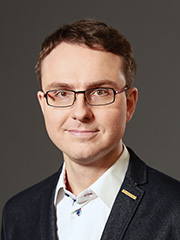
International Institute of Molecular and Cell Biology in Warsaw
Poland
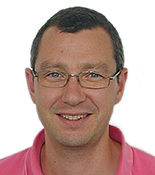
EMBL Grenoble
France
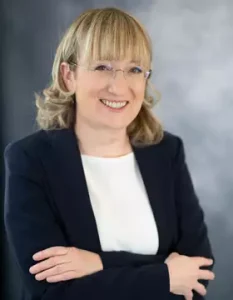
Max Planck Institute of Biochemistry
Germany
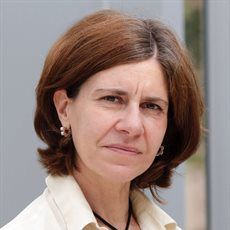
University of Birmingham
UK
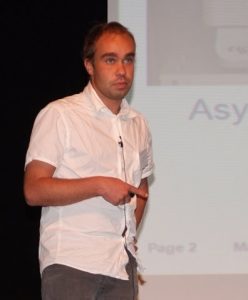
Centre de Biologie Structurale
France
The Biozentrum, University of Basel
Switzerland
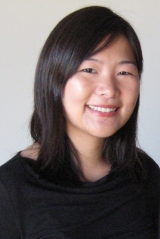
University of Utah
USA
Remote speaker
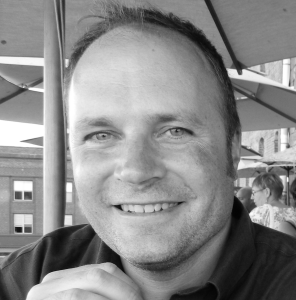
University of Bordeaux
France
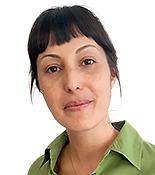
EMBL Heidelberg
Germany

Institut de Biologie Structurale
France
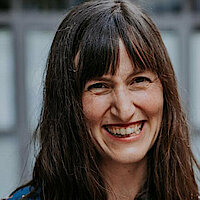
Leibniz-Forschungsinstitut für Molekulare Pharmakologie im Forschungsverbund Berlin e.V. (FMP)
Germany
European Synchrotron Radiation Facility
France
Netherlands Cancer Institute
The Netherlands
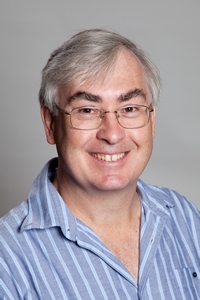
University of Cambridge
UK

EMBL Heidelberg
Germany
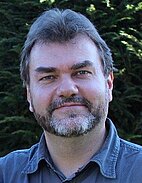
Institut de génétique et de biologie moléculaire et cellulaire
France
Martin Luther University Halle-Wittenberg
Germany
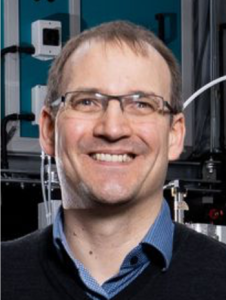
Paul Scherrer Institut
Switzerland
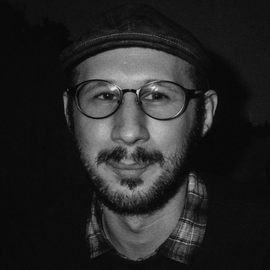
Seoul National University
South Korea

Penn State University
USA
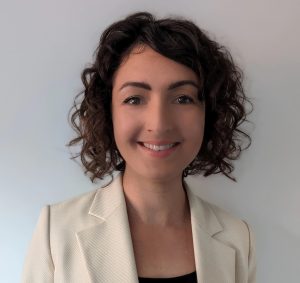
Thermo Fisher Scientific
UK
European Synchrotron Radiation Facility
France
| Name | Affiliation |
| Shibom Basu | EMBL Grenoble |
| Iskander Khusainov | EMBL Grenoble |
| Eva Kowalinski | EMBL Grenoble |
| Romain Linares | EMBL Grenoble |
| Daniele De Sanctis | European Synchrotron Radiation Facility (ESRF) |
| Eaazhisai Kandiah | European Synchrotron Radiation Facility (ESRF) |
| Hok Sau Kwong | European Synchrotron Radiation Facility (ESRF) |
| Mark Tully | European Synchrotron Radiation Facility (ESRF) |
| Ana Casañal | Human Technopole |
| Andrea Graziadel | Human Technopole |
| Cameron Mackereth | INSERM |
| Elisabetta Boeri Erba | Institute de Biologie Structurale (IBS) |
| Bernhard Brutscher | Institute de Biologie Structurale (IBS) |
| Adrien Favier | Institute de Biologie Structurale (IBS) |
| Aline Le Roy | Institute de Biologie Structurale (IBS) |
| Caroline Mas | Institute de Biologie Structurale (IBS) |
| Philippe Mas | Institute de Biologie Structurale (IBS) |
| Felix Weis | Institute de Biologie Structurale (IBS) |
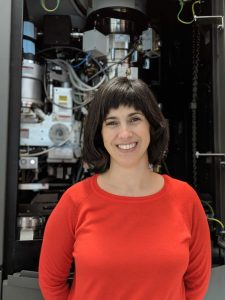
Human Technopole
Italy
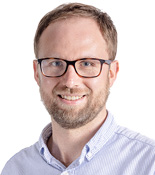
EMBL Grenoble
France
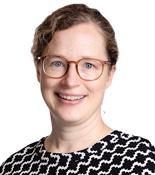
EMBL Grenoble
France
Institut de Biologie Structurale
France

European Synchrotron Radiation Facility (ESRF)
France
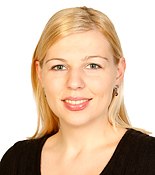
EMBL Heidelberg
German

EMBL Heidelberg
Germany
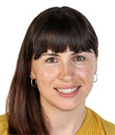
EMBL Heidelberg
Germany

EMBL Grenoble
France
Are you on social media? Post using #EMBOMacromolecular and don’t forget to tag @EMBLEvents.
Some pre-course work (such as watching pre-recordings, protocol reading and computational exercises) with estimated time 0-10 hours may be required and will be shared in advance of the course.
Some speakers may need to join virtually to give their lecture or Q&A, and the programme is subject to change.
| Time (Europe/Grenoble) | Speaker | Location |
|---|---|---|
| 12:00 – 12:30 | Arrival and registration | ILL/EMBL Hall |
| 12:30 – 13:30 | Buffet lunch | ILL/EMBL Hall |
| 13:30 – 14:00 | Opening and course overview | EMBL Seminar room |
| 14:00 – 15:30 | Student presentations – Part 1 | EMBL Seminar room |
| 15:30 – 16:00 | Coffee break | ILL/EMBL Hall |
| 16:00 – 17:30 | Student presentations – Part 2 | EMBL Seminar room |
| 17:30 – 18:00 | Break | ILL/EMBL Hall |
| 18:00 – 18:45 | Lecture 1: Structural studies of nucleosome binding complexes Song Tan – The Pennsylvania State University, USA | EMBL Seminar room |
| 19:00 – 20:00 | Dinner at the EPN campus | Bouillon A |
| Time (Europe/Grenoble) | Speaker | Location |
|---|---|---|
| 08:45 – 09:00 | Overview of the day Wojciech Galej – EMBL Grenoble, France | EMBL Seminar room |
| 09:00 – 09:45 | Lecture 2: Introduction to protein expression in E. coli Christophe Romier – Institut de génétique et de biologie moléculaire et cellulaire, France | EMBL Seminar room |
| 09:45 – 10:30 | Lecture 3: Eukaryotic expression systems Kim Remans – EMBL Heidelberg, Germany | EMBL Seminar room |
| 10:30 – 11:00 | Coffee break | ILL/EMBL Hall |
| 11:00 – 11:45 | Lecture 4: Mass spectrometry in structural biology Andrea Sinz – Martin Luther University Halle-Wittenberg, Germany | EMBL Seminar room |
| 11:45 – 13:00 | Lunch break | Canteen |
| 13:00 – 19:00 | Social event: visit to Vizille Castle | |
| 19:00 – 21:00 | Group dinner | Restaurant Epicurien |
| Time (Europe/Grenoble) | Speaker | Location |
|---|---|---|
| 08:45 – 09:00 | Overview of the day Carlo Petosa – Institut de Biologie Structurale, France | IBS |
| 09:00 – 09:45 | Lecture 5: Introduction to super-resolution microscopy Mark Bates – Institut für Nanophotonik Göttingen, Germany | IBS |
| 09:45 – 10:30 | Lecture 6: Single molecule FRET in studying proteins interactions and dynamics Sigrid Milles – Leibniz-Forschungsinstitut für Molekulare Pharmakologie im Forschungsverbund Berlin e.V. (FMP), Germany | IBS |
| 10:30 – 11:00 | Coffee break | |
| 11:00 – 11:45 | Lecture 7: Introduction to small angle x-ray scattering Mark Tully – European Synchrotron Radiation Facility, France | IBS |
| 11:45 – 13:15 | Poster session 1 | ILL/EMBL Hall |
| 13:15 – 14:15 | Lunch and networking | ILL/EMBL Hall |
| 14:15 – 16:15 | Parallel practical session 1 Practicals A, B, C, D Participants divided into groups of 4 attend one of the practical sessions A: EM intro (P1) B: Biophysics (P9) C: AF(P10) D: MS(P7) | Meeting point ILL/EMBL Hall |
| 16:15 – 16:45 | Coffee break | ILL/EMBL Hall |
| 16:45 – 18:45 | Parallel practical session 2 Practicals A, B, C, D Participants divided into groups of 4 attend one of the practical sessions B: EM intro (P1) A: EM analysis (P2) C: Biophysics (P9) D: AF(P10) | Meeting point ILL/EMBL Hall |
| 18:45 – 19:45 | Dinner | Canteen |
| Time (Europe/Grenoble) | Speaker | Location |
|---|---|---|
| 08:45 – 09:00 | Overview of the day Montserrat Soler Lopez – European Synchrotron Radiation Facility, France | IBS |
| 09:00 – 09:45 | Lecture 8: Introduction to automated synchrotron crystallography Matthew Bowler – EMBL Grenoble, France | IBS |
| 09:45 – 10:30 | Lecture 9: Serial X-ray crystallography Jörg Standfuss – Paul Scherrer Institut, USA | IBS |
| 10:30 – 11:00 | Coffee break | IBS |
| 11:00 – 11:45 | Lecture 10: Structure prediction and modeling of RNA Janusz Bujnicki International Institute of Molecular and Cell Biology in Warsaw, Poland | IBS |
| 11:45 – 12:30 | Lecture 11: Integrative structural biology of RNA-protein complexes Teresa Carlomagno – University of Birmingham, UK | IBS |
| 12:30 – 13:30 | Lunch | Canteen |
| 13:30 – 15:30 | Parallel practical session 3 Practicals A, B, C, D Participants divided into groups of 4 attend one of the practical sessions D: Biophysics (P9) C: EM intro (P1) B: EM analysis (P2) A: AF(P10) | Meeting point ILL/EMBL Hall |
| 15:30 – 16:00 | Coffee break | ILL/EMBL Hall |
| 16:00 – 18:00 | Parallel practical session 4 Practicals A, B, C, D Participants divided into groups of 4 attend one of the practical sessions A: Biophysics (P9) D: EM intro (P1) C: EM analysis (P2) B: MS(P7) | Meeting point ILL/EMBL Hall |
| 18:00 – 22:00 | Get together with PSB scientists Networking event with local PSB scientists with buffet dinner and drinks | ILL/EMBL Hall |
| Time (Europe/Grenoble) | Speaker | Location |
|---|---|---|
| 08:45 – 09:00 | Overview of the day Wojciech Galej – EMBL Grenoble, France | IBS |
| 09:00 – 09:45 | Lecture 12: Introduction to cryo-EM Rebecca Thompson – Thermo Fisher Scientific, UK | IBS |
| 09:45 – 10:30 | Lecture 13: Cryo-electron tomography Julia Mahamid – EMBL Heidelberg, Germany | IBS |
| 10:30 – 11:00 | Coffee break | ILL/EMBL Hall |
| 11:00 – 12:30 | Poster session 2 | ILL/EMBL Hall |
| 13:30 – 15:30 | Parallel practical session 5 Practicals A+B, C, D Participants divided into groups of 4 attend one of the practical sessions A+B:NMR (P3) C: MS(P7) D: EM analysis (P2) | Meeting point ILL/EMBL Hall |
| 15:30 – 16:00 | Coffee break | ILL/EMBL Hall |
| 16:00 – 18:00 | Parallel practical session 6 Practicals C+D, A, B Participants divided into groups of 4 attend one of the practical sessions C+D:NMR (P3) A: MS(P7) B: AF(P10) | Meeting point ILL/EMBL Hall |
| 18:00 | Free evening |
| Time (Europe/Grenoble) | Speaker | Location |
|---|---|---|
| 08:45 – 09:00 | Overview of the day Eva Kowalinski – EMBL Grenoble, France | IBS |
| 09:00 – 09:45 | Lecture 14: Atomic Force Microscopy Luca Costa – Centre de Biologie Structurale, France | IBS |
| 09:45 – 10:30 | Lecture 15: Introduction to NMR spectroscopy Cameron Mackereth – University of Bordeaux, France | IBS |
| 10:30 – 11:00 | Coffee break | IBS |
| 11:00 – 11:45 | Lecture 16: Biophysical characterisation of protein complexes Carolina Mas – Institut de Biologie Structurale, France | IBS |
| 11:45 – 12:30 | Lecture 17: Talk title TBC Martin Steinegger – Seoul National University, South Korea | IBS |
| 12:30 – 13:30 | Lunch | Canteen |
| 13:30 – 15:30 | Parallel practical session 7 Practicals A+B, C, D Participants divided into groups of 4 attend one of the practical sessions A+B: Serial prep (P5) C: SAXS (P4) D: XL-MS (P8) | Meeting point ILL/EMBL Hall |
| 15:30 – 16:00 | Coffee break | ILL/EMBL Hall |
| 16:00 – 18:00 | Parallel practical session 8 Practicals A+B, C, D Participants divided into groups of 4 attend one of the practical sessions A+B: Serial-MX(P6) D: SAXS (P4) C: XL-MS (P8) | Meeting point ILL/EMBL Hall |
| 18:00 | Dinner | La Chapelle Restaurant |
| Time (Europe/Grenoble) | Speaker | Location |
|---|---|---|
| 08:45 – 09:00 | Overview of the day Wojciech Galej – EMBL Grenoble, France | IBS Seminar Room |
| 09:00 – 09:45 | Lecture 18: iNEXT-discovery and and large infrastructures for structural biology Anastassis (Tassos) Perrakis – Netherlands Cancer Institut, The Netherlands | IBS Seminar Room |
| 09:45 – 10:30 | Lecture 19: Opportunities and challenges of AI methods in structural biology Randy Read – University of Cambridge, UK | IBS Seminar Room |
| 10:30 – 11:00 | Coffee break | IBS Seminar Room |
| 11:00 – 11:45 | Lecture 20: Mechanistic studies of the RNA surveillance pathways Elena Conti – Max Planck Institute of Biochemistry, Germany | IBS Seminar Room |
| 11:45 – 12:30 | Panel discussion of responsible conduct of research | IBS Seminar Room |
| 12:30 – 13:30 | Lunch | Canteen |
| 13:30 – 15:30 | Parallel practical session 9 Practicals A, B, C+D Participants divided into groups of 4 attend one of the practical sessions C+D: Serial prep (P5) A: SAXS (P4) B: XL-MS (P8) | Meeting point ILL/EMBL Hall |
| 15:30 – 16:00 | Coffee break | ILL/EMBL Hall |
| 16:00 – 18:00 | Parallel practical session 10 Practicals A, B, C+D Participants divided into groups of 4 attend one of the practical sessions C+D: Serial-MX(P6) B: SAXS (P4) A: XL-MS (P8) | Meeting point ILL/EMBL Hall |
| 18:00 – 18:30 | Break | ILL/EMBL Hall |
| 18:30 – 19:15 | Lecture 21: Structural data visualisation Janet Iwasa – University of Utah, USA (Virtual speaker) | EMBL Seminar room |
| 19:15 – 21:00 | Gala dinner | Corne d’or Restaurant |
| Time (Europe/Grenoble) | Speaker | Location |
|---|---|---|
| 08:45 – 09:00 | Overview of the day Carlo Petosa – Institut de Biologie Structurale, France | EMBL Seminar room |
| 09:00 – 09:45 | Lecture 22: X-ray imaging in structural biology Alexandra Pacureanu – European Synchrotron Radiation Facility, France | EMBL Seminar room |
| 09:45 – 10:30 | Lecture 23: Phase separation and membraneless organelles Maria Hondele – The Biozentrum, University of Basel, Switzerland | EMBL Seminar room |
| 10:30 – 11:00 | Coffee break | ILL/EMBL Hall |
| 11:00 – 11:45 | Lecture 25: Structural studies of RNA protein complexes Wojtek Galej, EMBL Grenoble, France | EMBL Seminar room |
| 11:45 – 12:30 | Course evaluation | EMBL Seminar room |
| 12:30 – 13:30 | Lunch | Canteen |
| 13:30 | Departure |
The course is limited to 20 participants. For selection purposes, please note that your application will not be considered without a letter of motivation.
Registration fees include accommodation (location to be confirmed), all meals throughout the duration of the course, admission and course materials. Travel expenses are NOT covered with the registration fee.
| Academia | €500 |
| PhD Student | €500 |
| Industry | €1000 |
A letter to support your visa application will be issued, on request, once payment of the registration fee is confirmed. We recommend that you book your visa appointment as soon as possible, to avoid any delay with your visa application.
The registration fee should be paid only after acceptance to the course. The results will be announced approximately 2-3 weeks after the application deadline.
After you have logged in and successfully registered, you will receive an email asking you to submit your motivation letter. Click on the link provided and enter your motivation letter in the text box provided. Alternatively you can submit your motivation letter by clicking on the link on the confirmation page directly after registering.
Instructions
Please note:
For detailed instructions, please watch our video on how to submit a course motivation letter.
For further information about registration and motivation letter submission please refer to the FAQ page.
Limited financial assistance is provided by the EMBL Advanced Training Centre Corporate Partnership Programme and EMBO in the form of registration fee waivers, travel grants and childcare grants.
Your place in the meeting is only confirmed by paying the registration fee, which is mandatory even when receiving a fee waiver.
The fee waiver will cover the registration sum that you have paid to attend the course.
The travel grant will cover the cost of travel (airfare, train, bus, taxi, accommodation, visa, and/or registration fees*) and is provided up to specified caps which are normally as follows:
– up to €400 for participants travelling to an EMBL Course within Europe.
– up to €1000 for participants travelling to an EMBL Course from outside Europe.
– up to €500 for any participant travelling to an EMBO Practical Course.
– up to €1000 for any participant working in Chile, India, Singapore or Taiwan travelling to an EMBO Practical Course.
– up to €700 for any participant working in Croatia, Czech Republic, Estonia, Greece, Hungary, Italy, Lithuania, Luxembourg, Poland, Slovenia, and Turkey travelling to an EMBO Practical Course.
*Registration fees are only covered for EMBO Practical Courses
The organisers may reduce the grant cap to accommodate more participants. Recipients will be notified of their travel cap amount when they are informed of the outcome of their application. Original receipts must be provided with your signature for all costs incurred within two months of completion of travel. Scanned copies cannot be accepted.
There is the possibility to apply for a childcare grant to offset child care costs incurred by participants, speakers, trainers and organisers when attending a course. Eligible costs include (but are not limited to) fees for a babysitter or child-care facility and travel costs for a caregiver. Please note that priority will be given to early-stage researchers. There is a limited amount of funding available for the childcare grants and funds will be distributed amongst eligible applicants.
Applies to selected courses only. Availability will be indicated during the motivation letter submission process.
This grant covers costs related to your attendance at the course (registration, travel and accommodation costs). The grant is restricted to PhD students and postdocs who conduct basic biomedical research.
Whether you are eligible to apply for a travel grant, depends on when you received your university entrance qualification (e.g. Abitur, A-Levels, High School Diploma, Final State Examination):
– for PhD and MD students, as well as graduates, the university entrance qualification must not have been obtained more than 11 years ago at the time of the envisaged course
– for postdocs, the university entrance qualification must not have been obtained more than 13 years ago at the time of the envisaged course
You may apply for financial assistance when submitting your motivation letter for courses. In your application, you will be asked to answer questions regarding why your lab cannot fund your attendance and how your attendance will make a difference to your career. Application for financial support will not affect the outcome of your registration application.
For the Boehringer Ingelheim Fonds Travel Grant, there is a pre-application question during the motivation letter submission process, and if selected you will be requested to complete a standard form and documentation consisting of your travel expense estimation.
The scientific organisers will select the recipients of registration fee waivers and travel grants during the motivation letter or abstract selection process. Results will be announced approximately 6 – 8 weeks before the event start date, however for some events this may be delayed. Selection results do not impact your admission to the meeting. Selection for registration fee waivers and travel grants is based on scientific merit, your current work or study location, the reasons for needing financial support, and the impact this event will have on your career.
Childcare grants will be allocated in the same timeframe (6-8 weeks before the event start date). Please note that priority will be given to early-stage researchers.
Costs will be reimbursed after the meeting only once a reimbursement form and original receipts (from travel costs) have been received.
See our list of external funding opportunities and for further information about financial assistance please refer to the FAQ page.
Reservations have been made for course participants at accommodation near the EMBL Grenoble site. More details will be available soon. Note, accommodation is included in the registration fee.
Shuttle buses will go from the hotel to EMBL campus and back, mornings and evenings. A bus schedule and location of the bus stops will be made available prior to the meeting.
Address: EMBL Grenoble, 71 Av. des Martyrs, 38000 Grenoble, France
From Lyon-Saint Exupéry Airport take the airport shuttle bus Lyon-Saint Exupéry–Grenoble counter (Satobus) inside the airport or in the bus. A single ticket costs 22€, a return ticket 33€.The stop “Place de la Résistance” is within easy walking distance of the EMBL site.
From Grenoble take Tram B towards “Resistance roundabout” and exit at “Grenoble Presquile”. The site entry is 350m away from the stop.
For further information on getting to EMBL Grenoble visit our Travel Information page.
Information will be provided ahead of the course about installing any software required.
The EMBL eCampus learning platform will be used to collaborate, communicate and network with all of the course participants. All participants will receive information on how to join shortly before the course. We recommend using Chrome, Safari or Mozilla Firefox browsers for eCampus.
Updated information will be provided closer to the time as required.
Event sponsors
Sponsorship opportunities
We offer a variety of event sponsoring possibilities, with the flexibility to select a set sponsorship package or combine individual sponsorship options to suit your event budget. Discounts are available for companies sponsoring multiple events at EMBL Heidelberg. View other events, or contact sponsorship@embl.de for further information.
If you are interested in becoming a media partner of this event, please visit our media partnerships webpage.
EMBL wishes to warn sponsors of EMBL conferences and courses of fraudulent schemes purporting to offer sponsorship opportunities on behalf of EMBL or affiliated with EMBL officials. One current scam campaign of which we are aware is conducted using the name ‘Judy Eastman’ (judy@gopcontact.a2hosted.com) and entails approaches to sponsors offering sponsorship opportunities on EMBL’s behalf. Please be kindly advised that all relevant communication regarding sponsorship of EMBL conferences, symposia and courses is handled by EMBL directly and is sent from an official EMBL account. EMBL does not work with any external providers on sponsorship acquisition.
Please also note that:
Suspicious communications purportedly from, for or on behalf of EMBL should be reported to EMBL at the following email address sponsorship@embl.de.
Want to let others know you’re attending this event? Take a look at our shareable media and feel free to use them in your social media channels or presentations.

Date: 1 - 8 Jun 2024
Location: EMBL Grenoble
Venue: EPN Campus, Grenoble
Deadline(s):
Application: Closed
Organisers:
Contact: Nathalie Sneider